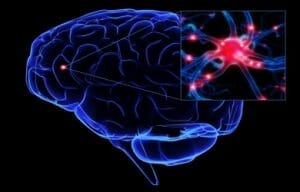Washington: The way the body metabolizes a commonly prescribed anti-retroviral drug that is used long term by patients infected with HIV may contribute to cognitive impairment by damaging nerve cells, a Johns Hopkins research suggests.
Nearly 50 per cent of people infected with HIV will eventually develop some form of brain damage that, while mild, can affect the ability to drive, work or participate in many daily activities. It has long been assumed that the disease was causing the damage, but Hopkins researchers say the drug efavirenz may play a key role.
People infected with HIV typically take a cocktail of medications to suppress the virus, and many will take the drugs for decades. Efavirenz is known to be very good at controlling the virus and is one of the few that crosses the blood-brain barrier and can target potential reservoirs of virus in the brain. Doctors have long believed that it might be possible to alleviate cognitive impairment associated with HIV by getting more drugs into the brain, but researchers say more caution is needed because there may be long-term effects of these drugs on the brain.
For the study led by Haughey and described online in the Journal of Pharmacology and Experimental Therapeutics, researchers obtained samples of blood and cerebrospinal fluid from HIV-infected subjects enrolled in the NorthEastern AIDS Dementia study who were taking efavirenz. Researchers looked for levels of the drug and its various metabolites, which are substances created when efavirenz is broken down by the liver. Performing experiments on neurons cultured in the lab, the investigators examined the effects of 8-hydroxyefavirenz and other metabolites and found major structural changes when using low levels of 8-hydroxyefavirenz, including the loss of the important spines of the cells.
Haughey and his colleagues found that 8-hydroxyefavirenz is 10 times more toxic to brain cells than the drug itself and, even in low concentrations, causes damage to the dendritic spines of neurons. The dendritic spine is the information processing point of a neuron, where synapses — the structures that allow communication among brain cells — are located. [more]


Be the first to comment